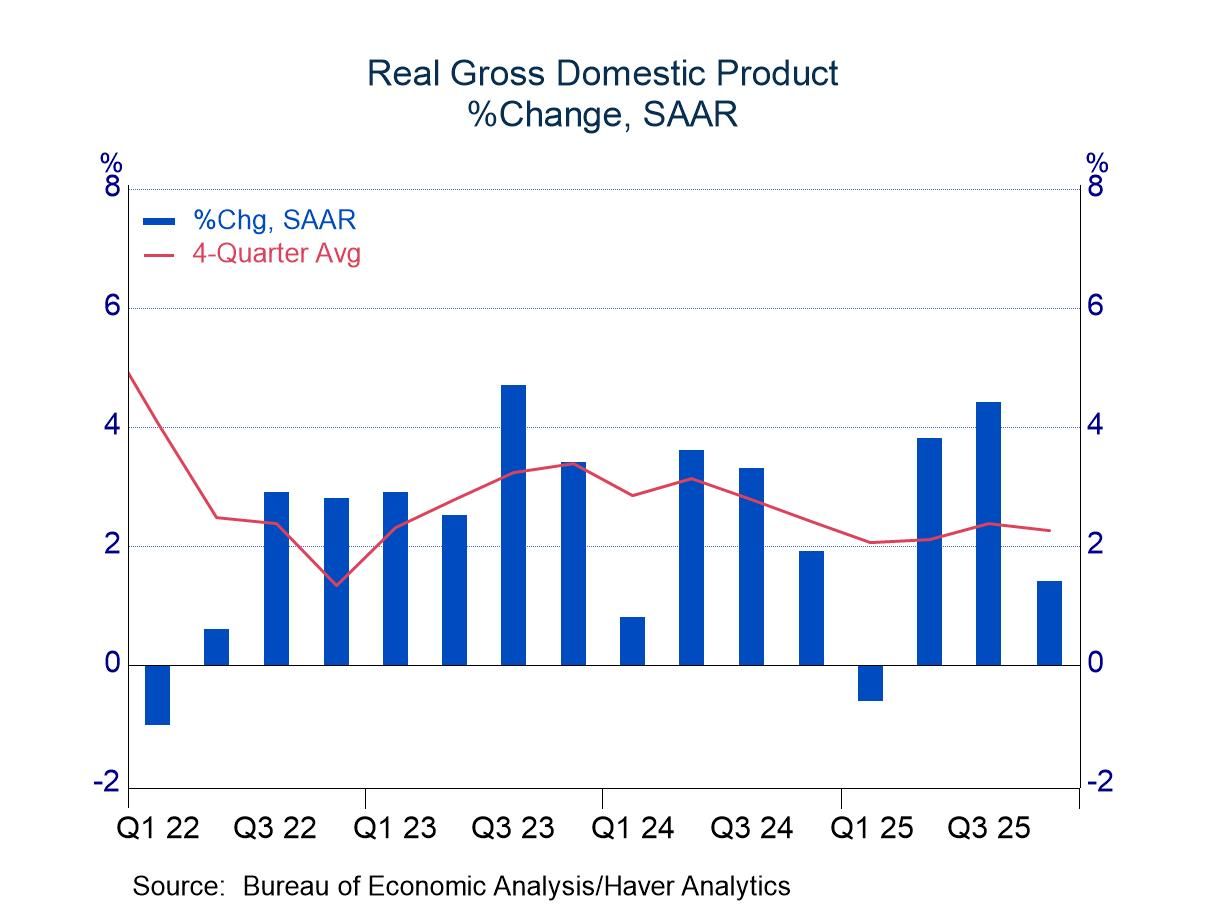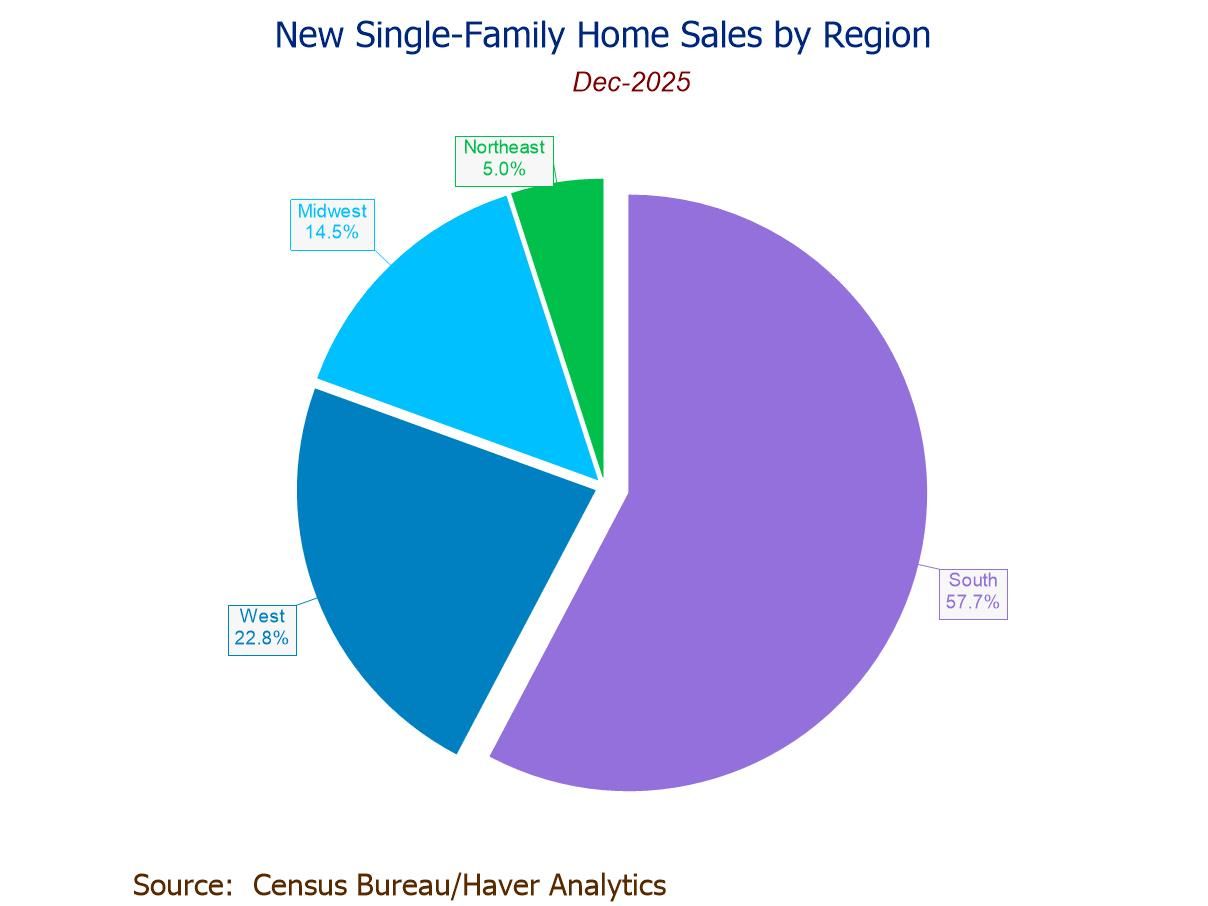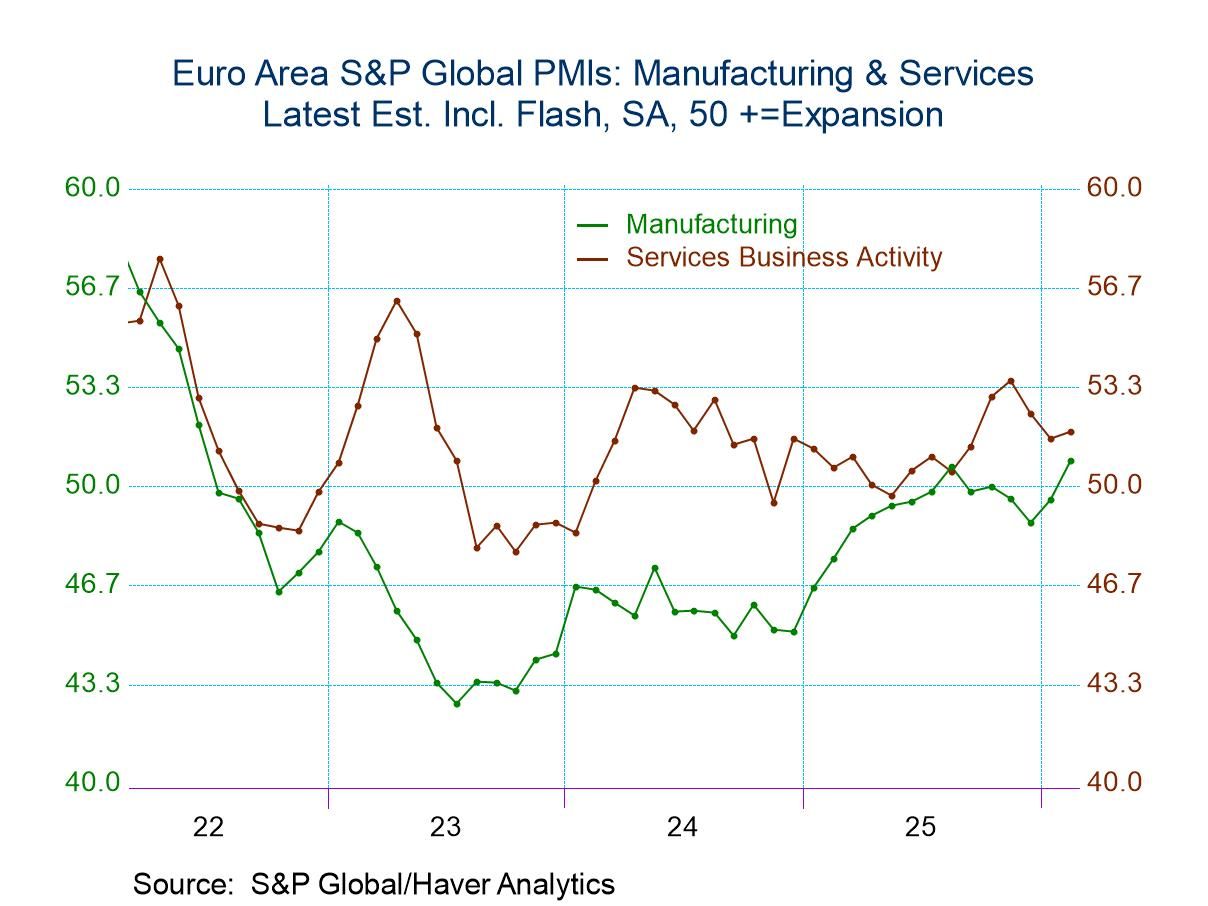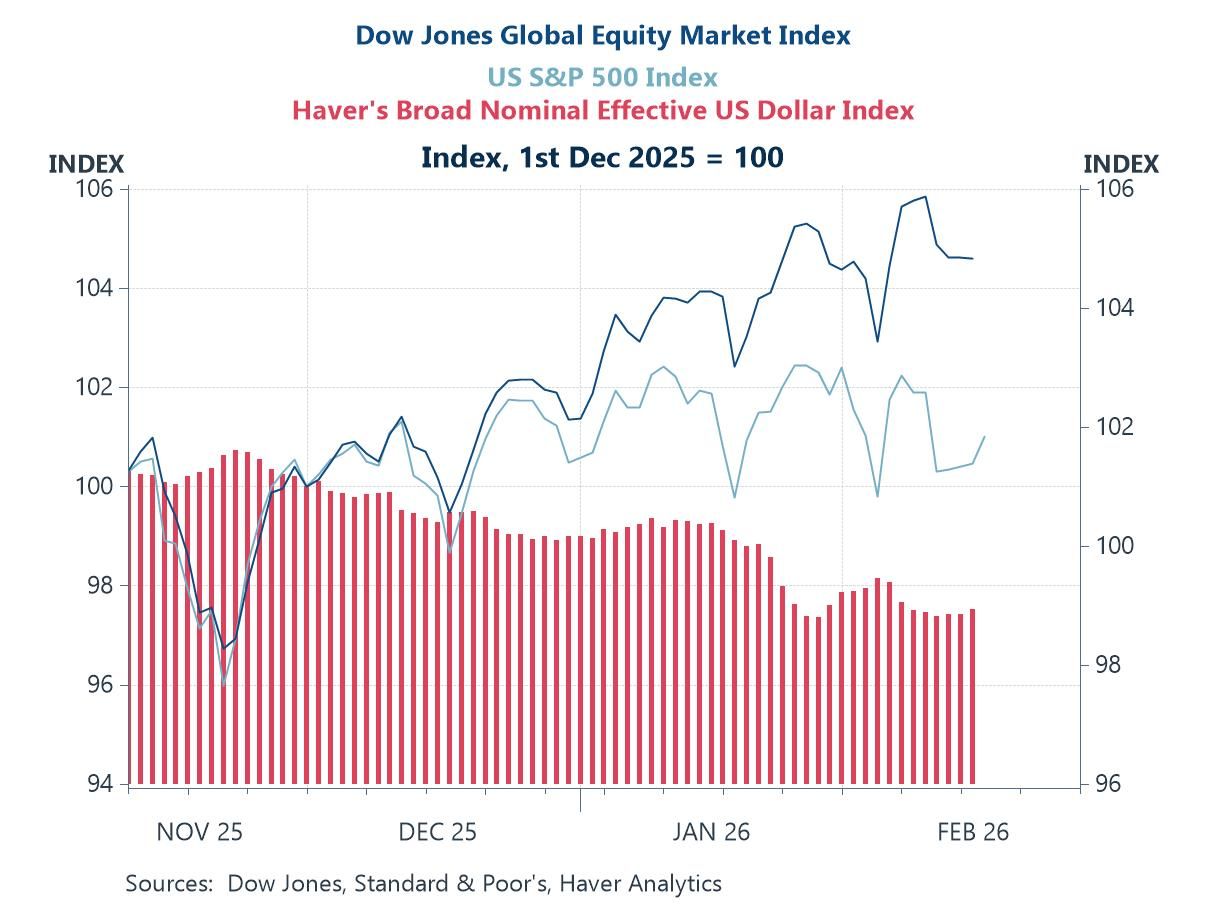U.S. Chicago Business Barometer Below 50 for the Fifth Straight Month in January
Summary
- Index dips to 44.3 in Jan. from 45.1 in Dec.; declines in index components except production (up 8.5 pts.) and supplier deliveries (up 1.4 pts).
- New orders (40.6) contract for eight consecutive months while production (48.6) and employment (42.0) contract for five successive months.
- Inflation pressures rise w/ prices paid at a three-month-high 72.5.


The ISM-Chicago Purchasing Managers Business Barometer slipped to 44.3 in January after increasing to 45.1 in December. The January level remained below the 50 expansion-contraction dividing line for the fifth straight month; it was also well below 65.4 last January and significantly down from peaks of 71.3 in May 2021 and 71.0 in July 2021. The Action Economics Forecast Survey had expected 45.0 for January. Haver Analytics constructs an ISM-Adjusted Chicago Business Barometer with methodology similar to the ISM Composite Index. This measure edged up to 46.2 in January from 45.8 in December, albeit remaining below 50 for the fifth consecutive month. The latest reading was down from 64.1 last January and a 64.4 high in October 2021.
The production index increased to 48.6 in January from 40.1 in December, indicating production contracted for the fifth successive month but at a less severe pace; however, the index was down from 61.2 last January and a 70.4 high in April 2021. The supplier deliveries index was at 54.9 this month, marginally up from 53.5 in December but meaningfully down from 87.5 last January. Eighteen percent of respondents (NSA) reported slower product delivery speeds while 12% reported faster delivery speeds. The new orders index declined to 40.6 this month from 43.3 in December, posting its eighth straight monthly contraction at a deeper pace; the index was down from 64.1 last January and a 77.0 peak in May 2021. Twenty-one percent of respondents (NSA) reported higher orders while an increased 42% reported a decrease. The orders backlog index plunged to 35.5 this month, the lowest reading since June 2020, after rising to an expansion-level 54.7 in December; it was well below 62.0 last January. The inventories index declined to 44.9 this month from 49.5 in December, showing the second straight monthly contraction to the lowest level since July 2021; it was down from an expansion-level 58.7 last January.
On the labor front, the employment index slipped to 42.0 in January from 42.6 in December, indicating employment contracted for the fifth straight month to the lowest level since September. The index was modestly below a contraction-level 49.0 last January and a 56.7 high in October 2021. Only 8% of respondents (NSA) reported higher employment while 25% reported less hiring.
Inflation pressures increased this month. The prices paid index rose to 72.5 in January, a three-month high, after easing to 65.1 in December. It was down from 89.7 last January and a 94.6 high in November 2021. An increased 54% of respondents (NSA) reported higher prices paid while a steady 9% reported price declines.
The Chicago Business Barometer is considered to be a leading indicator of the U.S. economy. An indicator reading above 50 indicates expansion while below 50 suggests contraction. Summary data are contained in Haver's USECON database with detail including the ISM-style index in the SURVEYS database. The expectations figure from the Action Economics Forecast Survey is in the AS1REPNA database.


Winnie Tapasanun
AuthorMore in Author Profile »Winnie Tapasanun has been working for Haver Analytics since 2013. She has 20+ years of working in the financial services industry. As Vice President and Economic Analyst at Globicus International, Inc., a New York-based company specializing in macroeconomics and financial markets, Winnie oversaw the company’s business operations, managed financial and economic data, and wrote daily reports on macroeconomics and financial markets. Prior to working at Globicus, she was Investment Promotion Officer at the New York Office of the Thailand Board of Investment (BOI) where she wrote monthly reports on the U.S. economic outlook, wrote reports on the outlook of key U.S. industries, and assisted investors on doing business and investment in Thailand. Prior to joining the BOI, she was Adjunct Professor teaching International Political Economy/International Relations at the City College of New York. Prior to her teaching experience at the CCNY, Winnie successfully completed internships at the United Nations. Winnie holds an MA Degree from Long Island University, New York. She also did graduate studies at Columbia University in the City of New York and doctoral requirements at the Graduate Center of the City University of New York. Her areas of specialization are international political economy, macroeconomics, financial markets, political economy, international relations, and business development/business strategy. Her regional specialization includes, but not limited to, Southeast Asia and East Asia. Winnie is bilingual in English and Thai with competency in French. She loves to travel (~30 countries) to better understand each country’s unique economy, fascinating culture and people as well as the global economy as a whole.






 Global
Global